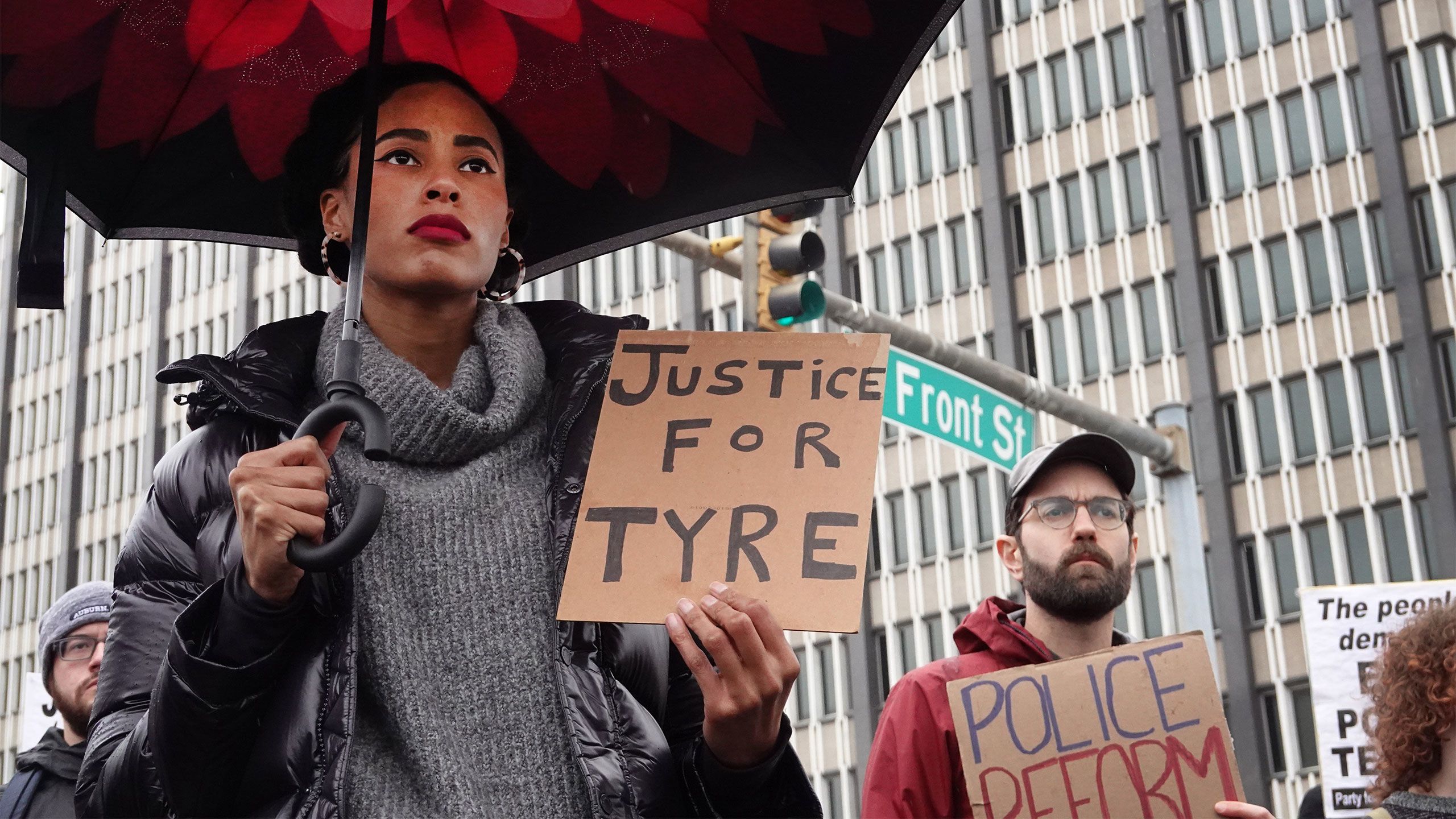A Man Laid to Rest,
A Nation in Unrest
Rutgers–Camden criminologist says systemic change in policing requires more than racial diversity measures

Tyre Nichols has been laid to rest following his fatal beating, while the nation remains in a state of unrest, desperate for solutions to the ongoing threat of police violence. Millions are questioning how a traffic stop resulted in the death of a 29-year-old Black man at the hands of multiple Memphis police officers who are Black themselves. One Rutgers University in Camden criminologist argues that, while it is important for more people of color to become members of law enforcement, increased racial diversity cannot do nearly enough to solve problems that are deeply rooted in the culture of policing.
Kayla Preito-Hodge, an assistant professor of criminal justice in the Rutgers–Camden College of Arts and Sciences whose research explores the intersections of race, policing, and the criminal justice system, considers Tyre Nichols’ story further evidence that Black cops cannot change organizational culture. She explained that “blue culture” is said to unite all officers regardless of their background, and officers who attempt to challenge the “blue cultural norm” risk not just their relationships with colleagues, but also their jobs and—in rare cases—even their lives.
In her research on Black police, Preito-Hodge found that some officers who challenged professional norms reported that they did not receive backup during emergency calls, or that they were reassigned to undesirable roles, like desk duty or last shift. Some reported being pushed out of policing altogether.


Kayla Preito-Hodge, assistant professor of criminal justice (Photo by Chris Patterson).
Kayla Preito-Hodge, assistant professor of criminal justice (Photo by Chris Patterson).
How did racialized police violence become part of blue culture? According to Preito-Hodge, the history of policing is rooted in white supremacy and anti-Blackness. This socialization process, especially for Black officers, serves as a mechanism to internalize notions about race and criminality.
“This is where the infamous ‘us versus them’ mentality comes into play,” Preito-Hodge said. “Socialization teaches officers how to become a part of the in-group and causes them to view the out-group as inherently dangerous. In large part, the rejection of organizational socialization is difficult and, in many ways, impossible.”
In light of this reality, Preito-Hodge said, the idea of increasing racial diversity in policing—a frequent reform recommendation—merely changes the face of police violence.
“Instead of white cops enacting violence, Black cops become the ‘band-aid’ and perform in the same manner,” Preito-Hodge said. “Therefore, the claim of ‘racism’ in police violence becomes a much more complicated argument.”
However, policy reforms that can make a difference in policing do exist. In a 2021 study published in Social Currents, Preito-Hodge and University of Massachusetts-Amherst researcher Donald Tomaskovic-Devey examined policy recommendations aimed at easing extreme tensions between communities and police departments around the country. The researchers found that an emphasis on community policing—officers talking to people, building relationships, and acknowledging the humanity of citizens—may make police less likely to use force against those citizens. In contrast, they found that proactive crime-control measures and larger police forces relative to the local population were associated with increased use of force.
The Nichols case proves that added scrutiny of police use of force is warranted, according to Preito-Hodge. She maintains that no profession should be exempt from criticism or accountability, especially those that deal with life-and-death scenarios.
“People would not think twice about scrutinizing doctors and nurses if patients were dying at alarming rates,” Preito-Hodge said. “We would demand answers. I think the same goes for police.”

Creative Design: Beatris Santos